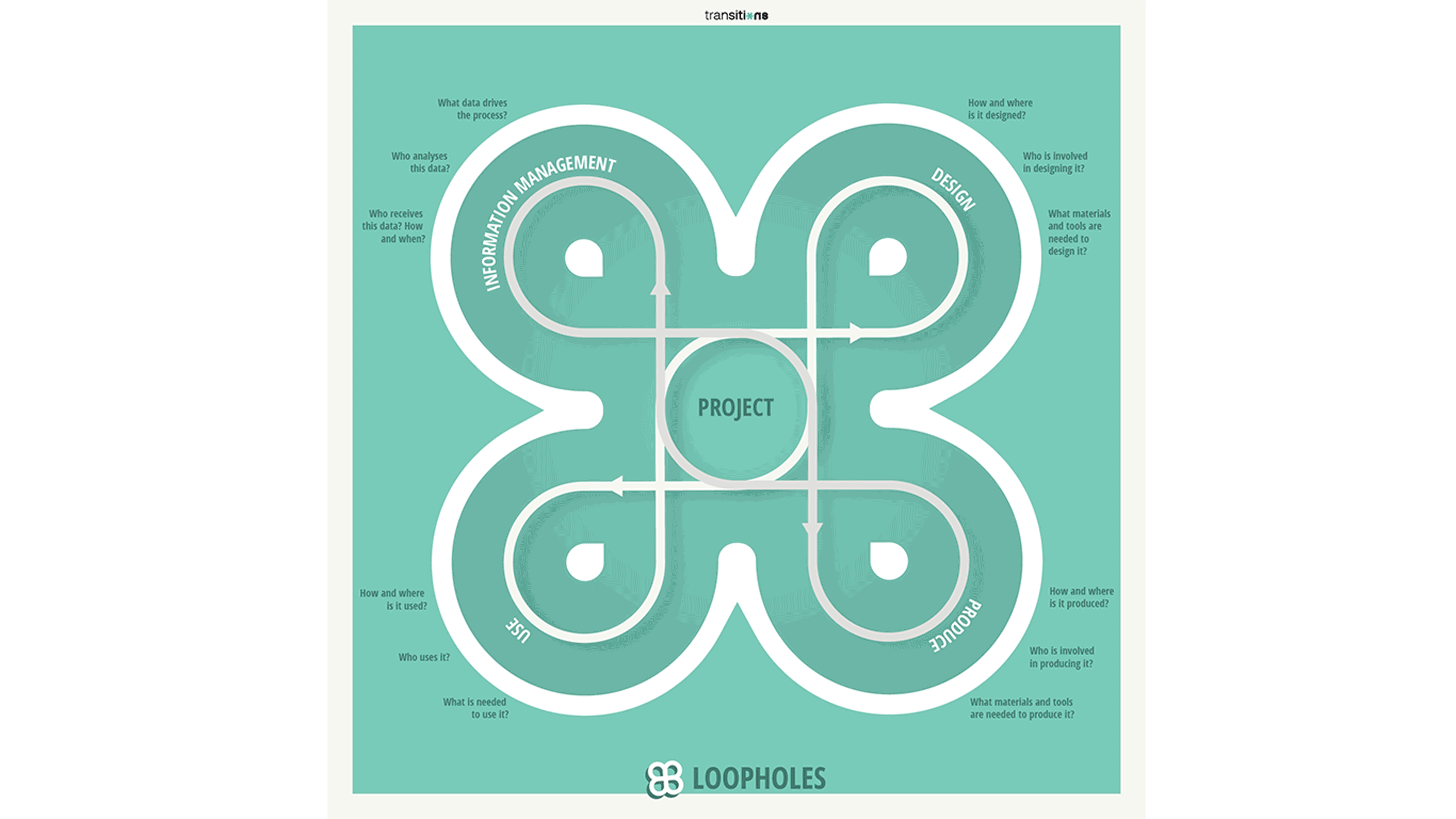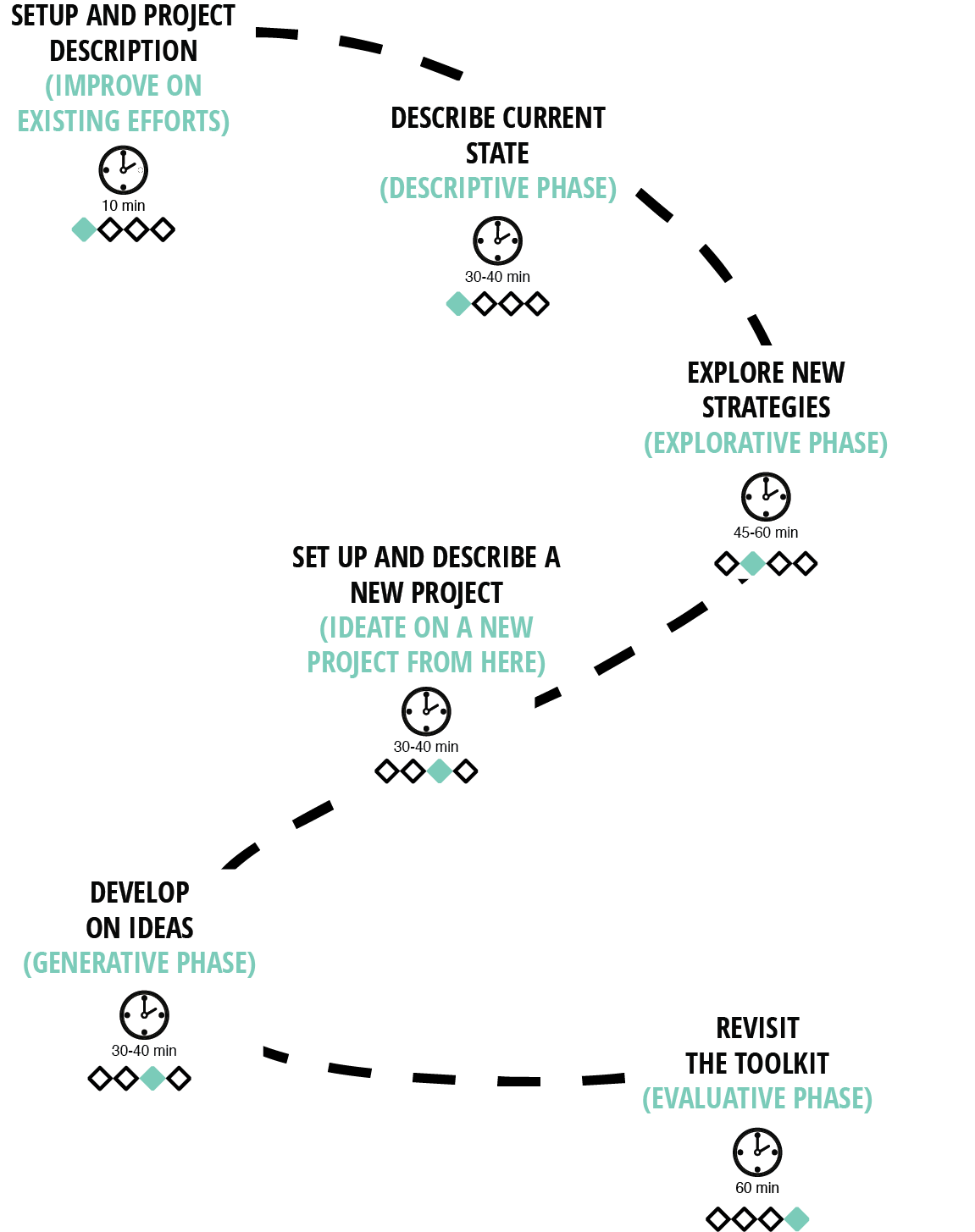Welcome to the Loopholes Circular Roadmapping Toolkit
A fusion of strategy and system design thinking for your fashion or textile company.
Click here to see the list of contributors.
Loopholes is a Transitions Roadmap toolkit designed to help companies and students adopt systemic innovation, digital transformation, and circular business strategies. It enables users to identify skill gaps, explore data interoperability, develop roadmaps for digital technology adoption, and evaluate sustainable business opportunities.
Beyond fashion and textiles, the Loopholes supports planning for traceability, technology integration, and cybersecurity. It aligns with the EU’s Textiles Transition Pathway and the Transitions Project, helping companies meet circular economy goals. It also equips students with the foresight to strategically upskill in areas such as digital manufacturing and fabric digitalization. More broadly, Loopholes serves as a systemic innovation guide, allowing other industries to draw parallels and adapt its principles to drive their own transformation.

To contribute to this site/access source files, click here
By utilizing this toolkit, fashion and textiles students, companies, and organizations can describe their current practices, develop opportunities for improvement, generate new ideas, and evaluate their operations with the latest EU regulations, including the EcoDesign for Sustainable Products Regulation (ESPR). The toolkit is designed to facilitate the transition of the textile and fashion sectors towards a circular economy, leveraging design and lean methods alongside economic models like the business model canvas.
Join us on this transformative journey towards a more sustainable and circular textile ecosystem. Explore our resources, participate in our co-creation sessions, and become part of a community dedicated to reshaping the future of fashion and textiles.
The Loopholes toolkit comprises 50 strategies categorized by Digitalization, Sustainability, Business & Finance, and Stakeholder Engagement. These strategies and categories were co-created with participation from project partners, local partners, academic literature, industry surveys, and expert interviews. The toolkit was tested and refined with entrepreneurs, companies, and students from many levels in the Netherlands, Italy, Spain, and Sweden, detailed in the Transistions project Technology, Industry and Sustainability Toolkit report.
Centered around a collaborative design process, the Loopholes toolkit empowers stakeholders to craft comprehensive user journeys and data flows, paving the way for future production systems with sustainability and technology in mind. It encourages reflection on current company processes and their expansion into product-service ecosystems and ecologies. Each toolkit iteration fosters localized strategies for transitioning towards circularity through digitalization.
The toolkit is catered for anyone looking to strategize on evaluating their current position in sustainability and tech innovation, wanting to improve current practices, or develop potential ideas to cater to the ever-changing future.
Dive into Design Thinking with the Loopholes Toolkit: Embrace Divergent and Convergent Methods!

The toolkit begins by helping you map the current state of your company or project. This brings the team to a consensus on the purpose and goals of the company which sets the stage for effective collaboration and meaningful outcomes.
For companies already engaged in existing work and seeking to strategize on future transitions, the next phase guides the team through a detailed description of efforts within the complete product-service ecosystem. It identifies ongoing initiatives, assesses their impact across various facets of the company, and offers an overview of whether these efforts are contributing to the shared vision.
This deep-dive then transitions into an explorative phase focused on charting the company’s path forward. New ideas are seamlessly integrated to build upon existing efforts and lay a roadmap toward a sustainable and innovative future through tangible and time-bound efforts.
For teams exploring a potential new project or starting from a clean slate, the toolkit offers an opportunity to ideate afresh. Utilizing cards and thoughtful questions, this phase assists in defining a new project from the ground up.
Such teams can further develop ideas on how to generate concepts that transform their vision into a tangible product-service ecosystem. The canvases prompt questions that guide the team to break down their project vision into practical efforts, encouraging consideration of different perspectives throughout the process.
While using the toolkit for exploration and idea generation is exciting, there is value in periodically revisiting these efforts to ensure that ideas and plans are progressing as intended. Emphasizing the iterative approach of this toolkit iteration, the final and crucial phase allows users to evaluate and refine their efforts based on on-ground feedback.
This approach empowers teams to innovate continuously, adapting and refining strategies to align with evolving business needs and market dynamics. Additionally, the toolkit provides a series of indications on policy considerations, ensuring that users are aware of and work towards complying with EU regulations due in the next few years.
Get Started with Our Toolkit: Download Now or Contact Us for More Information!
If this has piqued your interest, download the toolkit and its components to try it yourself, or contact for more information.
 Click here to download the Main board
Click here to download the Main board
 Click here to download the Strategy cards
Click here to download the Strategy cards
 Click here to download the canvas to help describe you project/company
Click here to download the canvas to help describe you project/company
 Click here to download the Data canvas for an information management perspective
Click here to download the Data canvas for an information management perspective
 Click here to download the Stakeholder canvas for an service and use perspective
Click here to download the Stakeholder canvas for an service and use perspective
 Click here to download the Material canvas for a product and process perspective
Click here to download the Material canvas for a product and process perspective
 Click here to download the Business canvas for a commercial viability and value addition perspective
Click here to download the Business canvas for a commercial viability and value addition perspective
